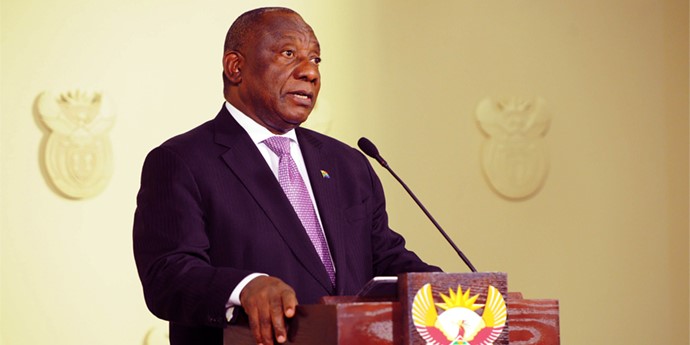Q: What are some of the benefits and drawbacks associated with globalisation?
Globalisation has both driven economic and political liberalisation and has similarly been driven by this liberalisation itself in what some would term either a virtuous or a vicious circle. We have seen new technologies creating anarchy with old companies and the rise of ultra-low-cost competitors. Likewise direct control has become more difficult as we increasingly rely on complex international value chains through outsourcing and disintermediation.
The benefits of global supply and value chains and just-in-time manufacturing have lowered cost structures and facilitated specialisation associated with presumed competitive advantages. To give two examples. The giant Boeing 787 Dreamliner has massive plants in Italy, Japan and United States manufacturing the one-piece composite fuselage barrels and wings and these aspects need to be completely in-sync and integrated across the globe. A major American notebook computer has its LCD display manufactured in South Korea or Taiwan, the microprocessor and motherboard in China, the memory in Japan, the hard disk drive in Singapore, Thailand or the Philippines, and the battery in Malaysia or Mexico.
This model allows for specialisation and for economies of scale at an unprecedented level resulting in significant cost advantages. But it is premised on integration, coordination and synchronisation. It only works as long as every part of the value and supply chain is live. If any single part of this chain breaks down the entire model is exposed and this is what we are witnessing. Firstly factories in China stopped producing with ripple effects. Then as Chinese factories came back on-stream, other parts of the global chains (for example, in Europe and the United States) went down once again showing that it only works if every block is functioning.
We need to be thinking about what happens beyond the pandemic. Will supply chains come back on stream effortlessly in a synchronised manner or will certain blocks (perhaps even tiny suppliers — notably those in emerging economies — that could not withstand the cash flow pressures) now be missing and expose the entire value chain? Will companies in the medium term reflect on this experience and change operations in a way which protects them slightly more for when the next one comes; and it will. People seem to think that there will be a simple on switch but it is not going to be that simple this time given the lack of synchronicity. How we stagger supply and value chains and different sectors back in and what those conditions need to be is a question that we are going to confront in the future.
Q: Has COVID-19 accelerated a deglobalisation trend?
I think the death of globalisation is exaggerated but I do think it will be different. We will see companies onshoring and insourcing some activities which they previously outsourced or offshored but simultaneously we are likely to see more outsourcing and offshoring in other areas. This is an opportunity for companies to take stock of the economic rationale for what they do and which parts of the value chains they have effective value propositions for and how they can effectively capitalise upon that. But at the same time we are likely to see governments becoming more involved in ensuring that there are effective buffers in supply chains in key sectors. For me the issue is not one of deglobalisation but rather about how we build and ensure greater resilience to future shocks.
Q: What impact is this going to have on emerging markets going forward?
Last year we saw emerging markets suffer disproportionately. Not only because many of them depend on being integrated into these global chains (be it as producers of essential resources or as manufacturers) but because they are at higher risk for the uncontained spread of the virus due to less efficient health services. Furthermore, emerging markets that rely on exports of commodities and raw materials faced a drop in their income in the short term. The currencies of emerging countries were under pressure, as investors reduced risk in their portfolios due to the negative sentiment worldwide and accordingly reduced their holdings in emerging markets to some extent. Lastly, many emerging markets have in recent years been issuing government debt in US dollars or euros and as their own currencies depreciated sharply, it put massive strain on the fiscus to finance this debt.
But 2021 could actually be a good year for emerging markets. Recent pressure on the dollar has increased the attractiveness of emerging market returns. China has recovered more rapidly than many had expected and that could be a catalyst for rising commodity prices. Of course the problem is that this is all dependent upon the pandemic being brought under control in the first half of this year, but if that is the case then it could see emerging markets bounce back. I do have a concern if interest rates start to rise about the pressure that will put on emerging market debts.
Q: Do you think it's time revisit the debate around cancelling low income country debt?
Over the past 20 years there have been several debt forgiveness programmes in operation which have had varied levels of success and failures. What is also concerning is how much of the debt has been incurred in the past 20 years and so we need to reflect on the two-sided nature of any debt forgiveness. The responsibility does not only lie with the international creditors but with the capacity of highly indebted low income countries to do the right thing with any new fiscal space and to have the appropriate governance in place if such debt forgiveness were to be forthcoming. This is not to say that we should not be looking at debt forgiveness but it needs to be part of a hard, real conversation. I have concerns with some of the debt that for example African countries have accumulated in the past 20 years. That debt is also interesting because a lot of it has new creditors and countries involved and how they will react to such a conversation is untested. There is an additional complication because many of the most highly indebted countries at the moment (in terms of debt to GDP ratios) are in fact high income countries and so international debt has become more complicated than it was 20 years ago. But we need to realise we are moving into an extraordinary period where both creditors and debtors are going to be under pressure.
Q: Do you think South Africa has a case around their proposal to waive patents and intellectual property so that developing countries can more easily gain access to the COVID-19 vaccine and treatment?
The issue of intellectual property and waiving of patents is controversial. In the short term the argument for this is very convincing in the face of a global pandemic but the longer term consequences in terms of medical innovation and whether it will hurt future investments is always in the background. I have very serious concerns about the price of some vaccines on the market especially given the fact that many of them have received a lot of public funding supporting their development. Also in the face of severe supply-side bottlenecks, the case for opening this up becomes stronger. The fact that there are a number of vaccines coming to market at the $3 price point might mitigate the need for the waiving of patents but we are going to have to look at the supply-side bottlenecks and how we involve more countries in the manufacturing of the vaccine.
Q: What strategies should emerging markets be looking to use to future-proof themselves in global supply chains after COVID-19, and in preparation for the next global disaster? Can you comment on South Africa specifically?
Unfortunately not all emerging markets are equal. If you are China you have a voice as an indispensable cog in the machine as both producer and consumer. If you are Tanzania or Zambia or Lesotho your voice becomes drowned out and your orders disappear without a second thought, with no guarantee that your place in the chain will be there months from now. Emerging markets need to build their competitive advantages by identifying factors that make them valuable, rare, inimitable and where they have the organisational capabilities to exploit these. Only then will they be heard. As regards South Africa, the country has been drifting in a middle income limbo since the early 1970s and it needs an energetic vision with a compelling value proposition within the global economy based upon innovation, productivity growth and moving up the value chain. Unfortunately I still do not understand South Africa’s vision. Furthermore any future strategy will require appropriate human capital and this is an area where South Africa has been sorely lacking. It is time for South Africa to make some difficult decisions but we also need a compelling narrative of what we are striving to be.
John Luiz is a professor at the UCT Graduate School of Business and University of Sussex Business School.



































